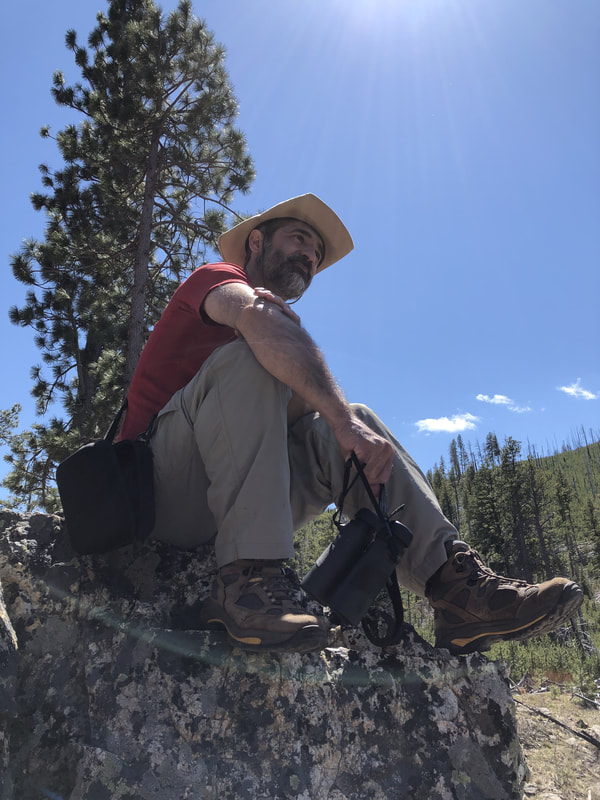It means the foundations of the environmental system. To me water is the currency that is traded between processes in the ecosystem, providing strong couplings between its components. In a broader sense, the field of ecohydrology provides a convenient framework to understand the environment that is intuitive and appealing to a wide range of environmental scientists from disparate subdisciplines. The composition of the Leafs in this blog are proof of it. Whether we are biologists, biochemists, ecologist, plant physiologists, geomorphologists… water is a common resource consumed by the processes that are of interest to us and therefore unify us.
What are your undergraduate and graduate degrees in?
My undergraduate is in Geography (2001) from the University of Extremadura in Spain with a year at the University of Kent at Canterbury and a year at the Autonomous University of Barcelona. My PhD (2006) is also from the University of Extremadura (Sustainable Development and Land Planning program within the Geography department), with stints at the University of Utrecht and at UC Davis. My dissertation presented the development and application of a ecohydrologic model to simulate the hydrology of semi-arid rangelands with shallow, degraded soils.
How did you arrive at working in/thinking about ecohydrology?
I did an undergraduate senior thesis estimating the magnitude of historical floods in an ungauged watershed close to Barcelona, which steered me toward the field of hydrology. Then for my PhD I was interested in understanding the spatial and temporal dynamics of runoff generation in degraded landscapes of Southern Spain (dehesas). In my study site, runoff and reinfiltration occurs in ‘hot spots’ determined by variations in soil properties associated with microtopography. This, in turn, organizes the hydrologic connectivity of the landscape and the spatial patterns of transpiration and vegetation growth. These observations gave me an appreciation of the feedbacks between hydrology and ecology.
What do you see as an important emerging area of ecohydrology?
I see two fronts that I think are starting to develop. One of them is the integration of more realistic plant physiology in our understanding of the hydrologic cycle. Plants are no longer seen by hydrologists as mere ‘straws’ in the soil that suck up water back to the atmosphere. Hydrologic models are starting to incorporate more sophisticated descriptions of plant hydrodynamics that tie together the hydrologic, energy and carbon cycles and better explain ecosystem-level stresses and vulnerabilities to drought and climate change.
A second critical front is the emerging recognition that humans are part of the hydrologic cycle (much like plants are) and that human decision-making regarding water use needs to be incorporated in our models (much like we are starting to incorporate plant physiological processes). Individual human behavior is hard to simulate, but as a group we are kind of predictable. I have had the pleasure to work with agricultural resource economists to understand how farmers allocate land and water under different socioeconomic and environmental scenarios and integrate this human behavior component into hydrologic models.
Do you have a favorite ecohydrology paper? Describe/explain.
Apart from the work of Peter Eagleson, foundational to the field, I think I will choose to mention here the series of papers published in 2001 by Porporato, Laio, Ridolfi and Rodriguez-Iturbe In Advances in Water Resources, and their book Ecohydrology of Water Controlled Ecosystems. These papers and book articulate very well the feedbacks between vegetation and soil water availability using statistical and mechanistic perspectives.
What do you do for fun (apart from ecohydrology)?
Apart from hiking Montana with my wife and my son, and playing my ukulele on the beach (that eternally underappreciated instrument), I like sailing (cruising) and all aspects of traditional navigation (coastal piloting and navigation by sun, planets and stars with a sextant). We recently traded our Athena 34’ sailboat that I used to sail in Flathead lake (MT) for a smaller cruising sailboat in the Bay Area, which is where I used to sail when I was a postdoc at UC Davis. Hopefully we will be cruising the California coast soon!

 RSS Feed
RSS Feed